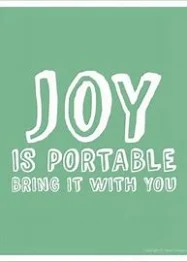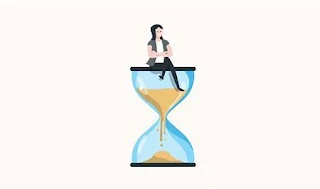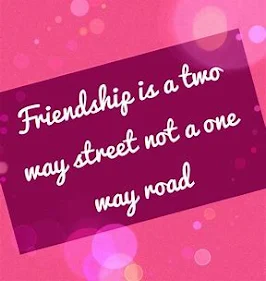Finding JOY In The JOY Of Others
As I DON'T have the slightest skills or capability in Psychology, allow me to reference the CHANGE TRIANGLE tool, first introduced way back the 1970s by Dr David Malan. Simply put, it is a step-by-step process to simply feel better. And talking about the CHANGE TRIANGLE, JOY is one of the seven core emotions on the CHANGE TRIANGLE. And like all other core emotions, JOY has a particular feeling in the body although that feeling varies from person to person. A medical doctor once egged her patients to kind of slow down to 'SCAN' their body for feelings of JOY even those little 'molecules' of JOY otherwise obscured by the more attention-grabbing NEGATIVE emotions. Finding JOY In The JOY Of Others is the key📘📙📗
Psychologists all opine that WHEN we find JOY inside, we would likely notice 'sensations' like warmth, energy and that 'inner peace'. And they attest that it feels 'amazing' to stay with and savor the physical sensations of joy BUT here's their word of caution: IT TAKES TIME because IT TAKES PRACTICE. BUT instead of downplaying things, psychologist attest that our capacity to experience JOY is constantly present within us. Your JOY might be deeply buried deep inside to protect you from either disappointment BUT it remains there💚💛💜
They further share that JOY has that 'special ability' to broaden our mind's perspective [as opposed to constricting it] WHICH happens during the NEGATIVE emotional states of anxiety and even depression. They sum it up in a bit technical statement which says: "JOY MAY HAVE AN EXPONENTIALLY POSITIVE EFFECT' on one's future thoughts and even behaviors. WHY? It's because JOY eggs us to play, expand our curiosity and connect with others. As more benefits abound, JOY lessens the time spent in NEGATIVE mood states and instead helps us physiologically recover from NEGATIVE states more rapidly💧💧💧
Experts share below some basic 'techniques' to build more joy:
- LOOK FOR LITTLE MOMENTS OF JOY - It could be petting a dog, watching sunrise, noticing a flower or tree, listening to your favorite music, etc. Looking for these 'MICRO-MOMENTS OF JOY' won't cost an arm and a leg
- DON'T PRESSURE YOURSELF TO HOLD ONTO JOY - DON'T ever worry about the 'fleeting nature' of JOY. Let the moment be WHAT it is.
- FOCUS ON HOW THE MOMENTS OF JOY FEELS BELOW THE NECK - It's akin to you yourself scanning your body from head to foot to notice the sensations
- ENJOY THE SENSATIONS - Even WHEN you feel tension OR anxiety, try to accommodate all that you feel insideOur takeaway: DON'T look too far from WHERE you are right now. Get back into your personal life. Get into your work life. Staying with the visceral experience of JOY will be challenging sometimes as WHEN the various feelings that come up WHEN we feel JOY will need tending and processing too, especially if they prevent JOY from flourishing. Let us NOT stop FINDING JOY IN THE JOY OF OTHERS💥💥💥




























































